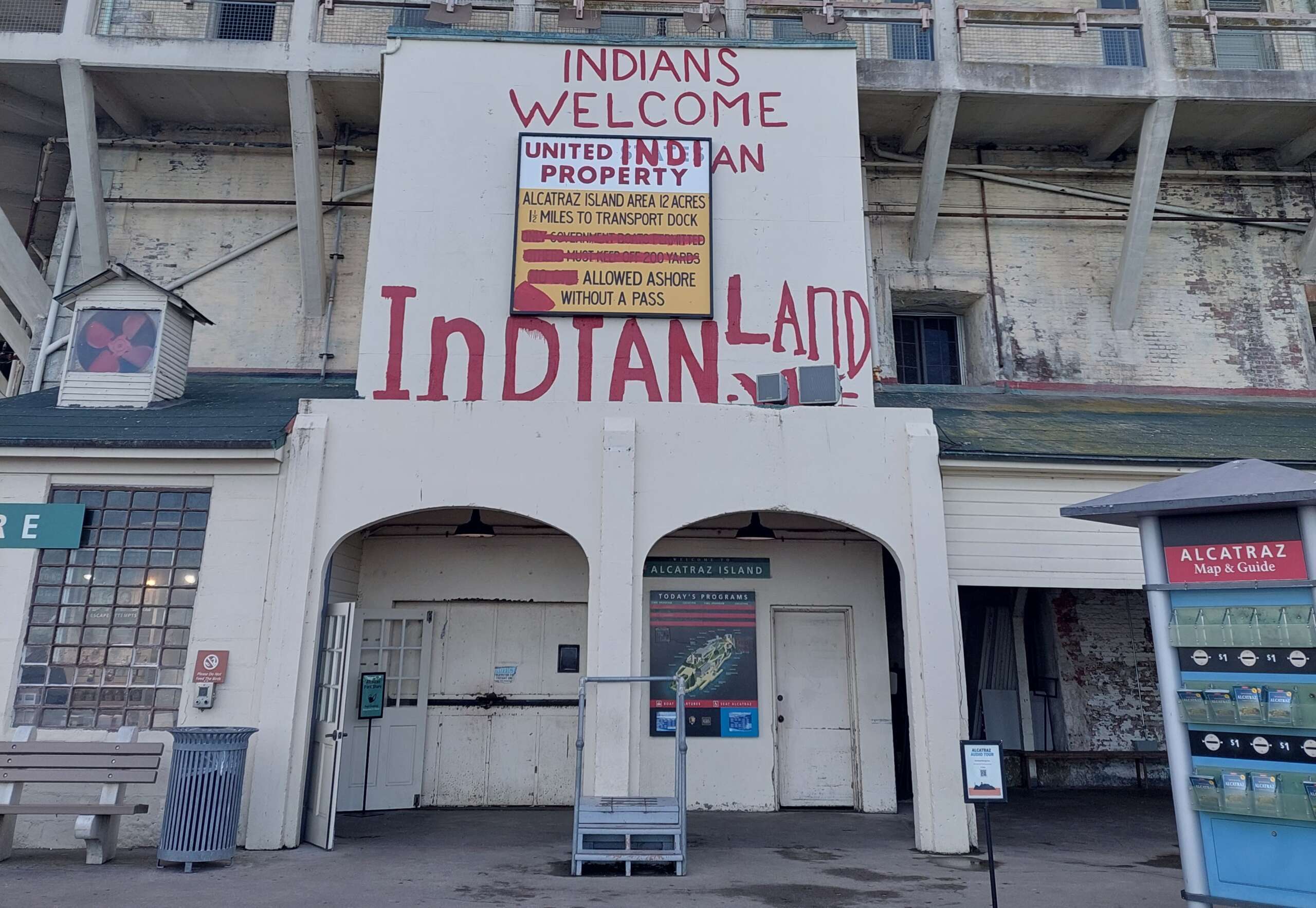The idyllic myths surrounding Thanksgiving align with broader strategies of historical revisionism used to justify settler colonialism by distorting and erasing histories of violence, exploitation and resistance. They reinforce settler identity and national pride and discourage critical engagement in our complex histories. These strategies serve to normalize colonization, valorize settlers and silence Indigenous voices.
Yet, even in the shadow of these painful histories, Native communities have found ways to challenge the sanitized myths of Thanksgiving and call for a reckoning with the true history of the United States, encouraging reflection, accountability and action to support Indigenous rights and justice. At the same time, the holiday serves as an opportunity to reclaim whitewashed narratives and assert Indigenous presence, reminding the world of the unbroken spirit of Native nations.
In the spirit of the Alcatraz occupation, Unthanksgiving Day, also known as the Indigenous Peoples Sunrise Ceremony, has been organized by the International Indian Treaty Council and held annually on Alcatraz Island since 1975. The Unthanksgiving sunrise ceremony honors the legacy of the Natives who occupied Alcatraz and fosters solidarity among Natives and non-Natives. It serves as a celebration of Indigenous survival and the ongoing fight for justice.
One of the most poignant moments in the speech that Wamsutta had planned was a reminder of our humanity:
History wants us to believe that the Indian was a savage, illiterate, uncivilized animal. A history that was written by an organized, disciplined people, to expose us as an unorganized and undisciplined entity. Two distinctly different cultures met. One thought they must control life; the other believed life was to be enjoyed, because nature decreed it. Let us remember, the Indian is and was just as human as the white man. The Indian feels pain, gets hurt, and becomes defensive, has dreams, bears tragedy and failure, suffers from loneliness, needs to cry as well as laugh. He, too, is often misunderstood.
For Native peoples, the destruction and suffering in Gaza are hauntingly familiar because they mirror the aftermath of tragedies like the Massacre of Wounded Knee and violent police attacks on Water Protectors at Standing Rock. These shared experiences highlight the devastating consequences of colonizers wielding violence to suppress resistance. However, while these tragic circumstances remind us of our shared history of violence, they also remind us that our people have a shared spirit of resilience and survival.
As Thanksgiving myths continue to shape public consciousness, there is a pressing need to disrupt those narratives and center the voices of those who have been silenced. By addressing the uncensored history of colonization and its ongoing impacts, we can encourage action toward Indigenous sovereignty, environmental justice and human rights on a global scale.



While there is some mourning and protest by the Native American population, I can say as a Lakota that many of Lakota people believe that Thanksgiving is more about gratitude than history.
Yes, bad things happened in the past, but we would rather find thanks on the day than dwell on yesterday.
It’s like Christmas or Easter, or whatever. It transcends the original story and becomes something new. Thanksgiving, to me and my family, means getting together and enjoying the bonding over a meal. I’ve never celebrated the decimation of the indigenous peoples, except for school activities that paint a very different picture.